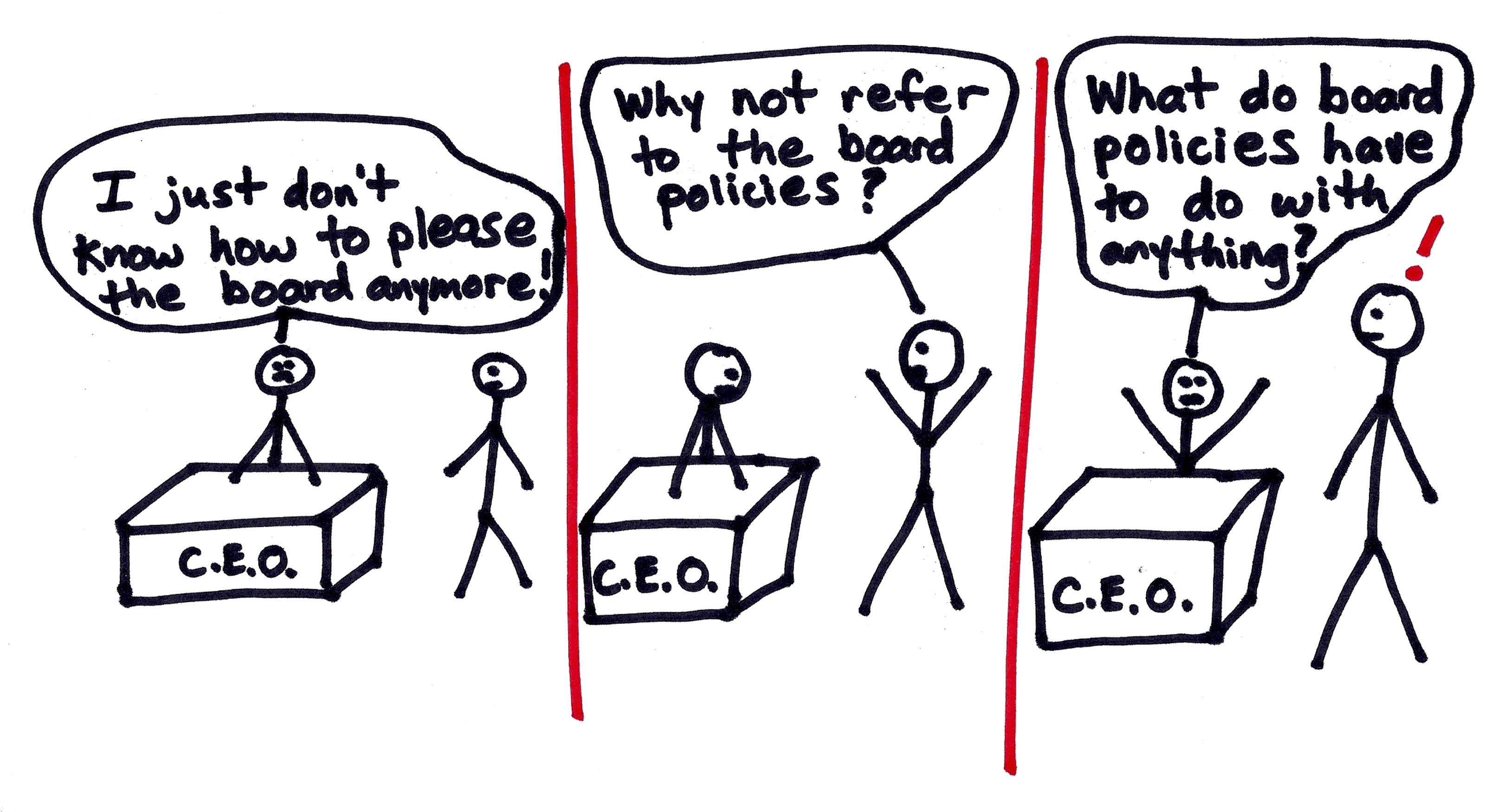What if a university decided unilaterally to stop following its traditional approach to policy development affecting faculty and librarians, an approach mandated through collective bargaining?
Policy development almost invariably occurs in relative secret, and it's a good idea to guard against the social panics and whatnot that can come from the too-early release of too-imprecise language. As a result, it can take a while before it becomes clear that a consultation and approval approach turns out to have changed, but here at UVic, this seems somehow to have happened. The Faculty Association has lodged official objections on a few policies now, and the objection process has been underway for a little while, so I'd hoped that we'd see some improvement. When I attended this morning's Board of Governors meeting, though, the President's report on policy development (beginning at page 120 in this document) didn't suggest any reversal of course in the offing.
The Framework Agreement between the university and the Faculty Association is very clear about how policy change ought to occur, when policy has to do with terms and conditions of employment. The contract identifies that such a change cannot occur without the prior agreement of the Association. The university has this year approved policy changes affecting terms and conditions of employment, without so much as raising them with the Association, and it's drafting changes to others without yet having brought them to the Association's attention.
I think that this is patently unacceptable, given this university's stated commitment to collegial governance, but let's look at some contract language, shall we?
Current policy, practices and procedures are captured under article 7.2 of the Agreement as "Existing Practices," and existing practices are protected thusly: "all Existing Practices applicable to the terms and conditions of employment of Members shall remain in effect and unaltered during the term of the Agreement, except as may be specifically agreed between the Parties from time to time." Yes, I can hear you asking, yes, but what does that waffle "specifically agreed" really mean? Article 7.3 has the answer:
The University will not introduce amendments to or repeal Existing Practices that affect the terms and conditions of employment of Members, as defined in this Agreement, without the prior agreement of the Association.So there you go, no unilateral amendments: "prior agreement of the Association."
Development of new policy is similarly circumscribed at article 7.4:
The University will not adopt new policies or procedures that affect the terms and conditions of employment of Members, as defined in this Agreement, without the prior agreement of the Association.
Oh, and if you're wondering how exactly this agreement might be sought or obtained, well, the Framework Agreement has an answer about that as well, at article 7.7:
The forum for consultation regarding the application, development or modification of University policies shall be regularly scheduled meetings between representatives of the Association (President and members of the Executive) and the University (President, Vice-President Academic and Provost, and such others as are designated by the President).
Meetings. That's all it would have taken for the university to obtain the necessary "prior agreement of the Association." The trouble is that these "regularly scheduled meetings" haven't been happening. They stopped being scheduled before bargaining began in early 2012, so the cessation has continued through the overly long bargaining process (entering, as we are, our twelfth month without a contract). Still, there's no clear reason that they should ever have stopped, and there's no reason that they couldn't have resumed. Heck, they actually are resuming on May 28, with arbitration still to come in September.
But even so, a cessation of "regularly scheduled meetings" simply cannot justify the administration's acting as if there was no need to obtain the prior agreement of the Association.
Let me be clear. At regular intervals, the university needs to update its policies that relate to terms and conditions of employment for Association members. From time to time, too, new policies also need to be generated and approved that touch on members' employment. More than that, the Association can't unreasonably withhold its agreement for a reasonable new or amended policy.
So as I've said before -- for a university's governance to be truly collegial, its executive needs to talk to its community members. In this case at UVic, community membership is defined under the Framework Agreement as faculty and librarians, represented by the Faculty Association.
Rather than talking to the Faculty Association, and following the other obligations spelled out in the Framework Agreement, the university's executive has chosen to unilaterally impose new and amended policies on its faculty and librarians.
And that's just not cool. For pete's sake, is it so difficult just to speak with representatives of the Faculty Association?
-----------------------
Why should you care? Because policies at some stage of development or revision include:
- communication
- research funding management and financial accountability
- teaching and organization of courses and programs
- intellectual property
- research or teaching involving animals
- indirect costs of research
- research policy, and
- external research funding agreements.
These subjects matter to all of us.




